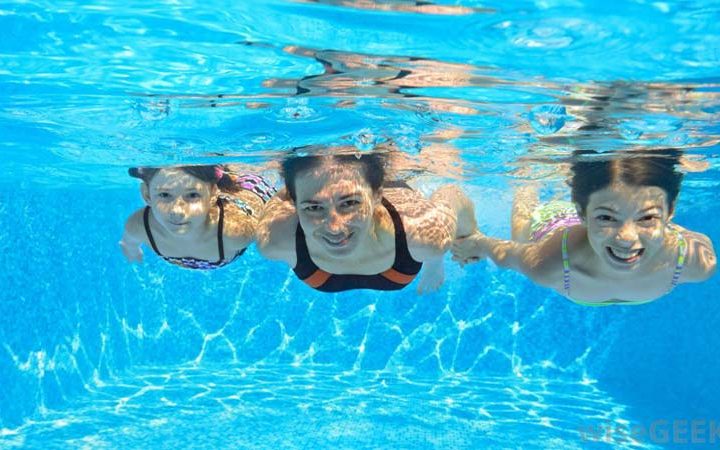When you have a pool, cleaning it is essential and for major clean-ups automatic pool cleaners of some kind are ideal. There are several types of cleaner that make the work less of a drudge, the best of all being the robotic cleaner that picks up all kinds of debris both large and small. But in between these major cleans, you still need to do maintenance so the water is less likely to get algae and bacteria in it. Here are 8 easy tips to help.
- Use a pool skimmer to remove surface debris every day. Most such rubbish floats for a few hours before sinking, so it is easier to remove it at this time and it will not then have time to start decomposing to any great extent, making your pool water pH out of balance. You should also empty the skimmer baskets every day.
- It is not only the leaves and twigs blowing into the pool that causes a problem with water purity; sunscreen and body oils wash into the water also. These can’t be lifted out with a scoop, but if you throw 2-3 new tennis balls into the pool, the oil in both will get caught on the fur as they bob around. Take them out and run them under the hot tap every so often to remove the oil.
- Having an automatic pool cleaner or brushing the pool once a week to prevent mould or algae build-up. Everything that is under the water needs to be brushed, including steps, rails, ladders, walls and base. Vinyl, fibreglass and tiles need a soft brush; concrete and plaster need a stiffer brush.
- After brushing it down, it needs to be vacuumed, otherwise the debris will simply float back onto those surfaces.
- Test the chemical balance of the pool water twice a week. The pH should be between 7.4-7.6 and the Chlorine should be 1-3ppm. If you keep it at these levels, less cleaning is needed. The best time for testing is early in the evening when the last swimmer has left.
- If your pool has heavy usage such as over the summer school holidays, it is likely the ammonia and nitrate levels will increase. When mixed with the chlorine already present the two compounds form chloramines resulting in cloudy water and a strong smelly chlorine odour. You may have to ‘shock’ the pool water once a week by adding lots more chlorine to get rid of this and other nasties. Do it at dusk and leave the filter system running overnight. Dusk is the best time because sunlight degrades chlorine.
- Having a pool cover eliminates the need to shock it so much, with 7-10 weeks between shocks sufficient.
- Make sure you maintain the correct stabiliser levels as this helps to prevent chlorine from degrading.


